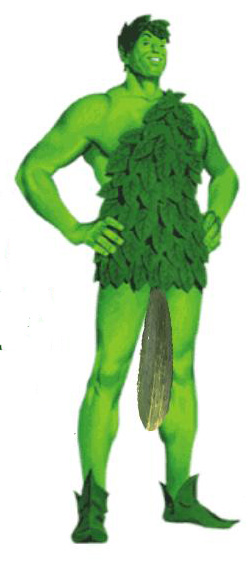We've been reading some Langston Hughes this week at school. He's one of those poets whose words have a thousand meanings and his poems another thousand interpretations. So I ask the kids to make word associations with the word dreams. I get a lot of the usual responses until my sixth period, when one of my girls raises her hand and says, "Ghosts."
I ask her to explain.
She's Chinese, though, and her explanation has to do with warnings from ancestors. I understand.

I had a dream like that once. In my dream, it was my wedding day, and I was greeting guests. I had no idea who I was marrying, and I was a little panicked over the thought that I'd made a mistake. (Let's not talk about the symbolism here.) As I'm standing in the receiving line next to a faceless man whose name I can't remember, my Grandma walks up and hugs me and it all seems perfectly normal. She tells me that she knows I'll be happy and not to worry. She then disappears into the crowd.
I turn to greet the next guest and it's my Aunt Arlene. I tell her that I just saw Grandma and then, as I see the stunned look on her face, I remember that Grandma is dead. Then I push through the crowd to find her again and never do. Everyone around me is someone I love, but no Grandma. The thing is, in the dream, I was certain she was really there, and if I could only find her, I could tell her that there was a mistake, and that everybody thought she was dead, and if she just came with me, we could correct everyone's misapprehension.
But of course life doesn't work that way.
And here's the thing: I'm convinced that it was my Grandma. I think the veil between life and death is somewhat diaphanous when we're sleeping.
The good news is that Grandma thinks I'll be happy someday.

I had another dream long ago, when I was seventeen years old. This one involved my Granny, who'd been ailing for some time. It was my first week of college, and I'd just moved into the dorms. I was exhausted after an afternoon of god-knows-what and fell asleep. In my dream, my Granny came to me and told me that she was dead. She said that it was okay, but she worried about my father. He wasn't going to take this well, she said, and I should look after him.
I don't know how long I slept that afternoon, but the telephone woke me. It was my mom. "Granny's dead, isn't she?" I asked. And of course she was. She'd told me, hadn't she?
Now you can come up with all kinds of explanations about how I was expecting to hear the news any day and my subconscious supplied me with a goodbye from my Granny because I was away at school but I prefer my version.
So fine. I'm not a nutball who goes around ghosthunting or anything.
Um. Okay, I went ghosthunting once.
Twice.
But I didn't really expect to find ghosts. My friends Rich and Al and I had this book, you see, that listed all these haunted places in Chicago. We loaded up a couple of cars with ten of our closest friends and lots of alcohol and ran around Chicago, climbing fences and trying to hold in our hilarity. We even sneaked into the church where the devil supposedly went to communion. What can I say? We were young.
(Brief aside: Al ended up becoming a priest. That kills me when I remember our early twenties.)
The scariest site was a place called Bachelor's Grove. It's a deserted town graveyard in the middle of a forest preserve just off the Midlothian Turnpike. We drove past but were way too chicken to actually go inside. You see, it was dark, Halloween night, and that place supposedly has a disappearing house, galloping ghost horses, and evil singing ghost-monks. It also has a sad ghost that wanders the graveyard. Here's the famous photo of her:

Yes, yes, I know. Grainy photograph. But you see, once the guys were too afraid to look for her, I simply had to see.
I told my sister-in-law Vivian about Bachelor's Grove, and she was a lot less chicken than the guys. Armed with a camera and the ghost book, we found the entrance to the forest preserve and parked our car. This story is especially funny to me now, because it happened when Viv and Brian were still a very new couple, and still she was willing to go along with me on one of my harebrained schemes. It's probably why she can stand living with my brother. He's full of them, too.
Anyway, we park our car and start walking to the road. The guidebook says we have to cross the street. As we're getting close to the street, this woman was getting out of her car, too. "Going ghosthunting?" she asked.
Clearly, we looked like ghosthunters.
We stopped to chat. She had a gigantic dog with her. He senses things, she told us. She takes him with her on all of her ghost hunts. She wanted to look at my camera and asked if I had an infrared lens. I didn't. Amateurs, we.
We went into the graveyard and took pictures of every angle we could think of, then walked to the pond behind the cemetery that was an alleged mob dumping ground and took pictures of that, too.
We couldn't stand to wait for the results of the photographs. Seriously. We were like a couple of little kids. But then they came back and we pored over every inch of them. But: nothing. No obvious ghosts. There's a slight discoloration in one of the pictures above the mob pond, however, and we decided that it was definitely the ghost of a guy who was sent to sleep with the fishes.
Jimmy Hoffa! It was Jimmy Hoffa. That's right. I'm going to go on record saying that Viv and I found Jimmy Hoffa.
Hey, allow us our little fantasies, will you?
Or, you can just tell me your own ghost story. I love ghost stories. I actually have a couple more, but those I'll save for another day.
 I discussed my speed problem with my trainer. At first, I think he didn't understand just how much this slow thing is distressing me. "But you're doing great," he said.
I discussed my speed problem with my trainer. At first, I think he didn't understand just how much this slow thing is distressing me. "But you're doing great," he said.



